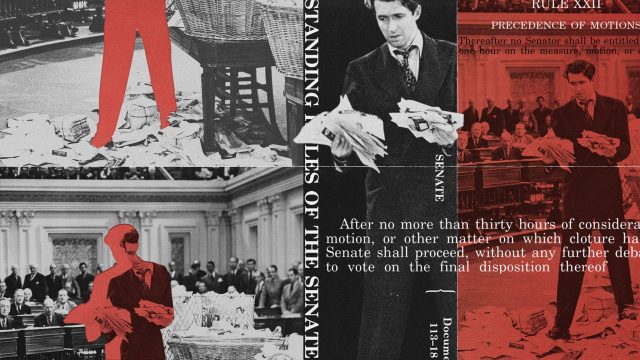
The filibuster is keeping the government shutdown alive. Republicans hold a majority in the Senate, but filibustering Democrats have enough votes to keep the GOP from reaching the 60-vote threshold now needed to pass most legislation. Some Republican officials think it might be time to kill the rule and finally end the shutdown.
A growing willingness among GOP senators to consider ending the filibuster is a “sign of just how stuck things are,” said NOTUS. Longtime defenders of the 60-vote rule are now weakening in their resolve. Sen. Susan Collins (R-Maine) is a “strong supporter” of the filibuster, “but obviously I’ll look at any plan that anyone puts out in order to reopen the government,” she said. Republicans may have no other choice. “If we can’t get anything done, that’s what they’re gonna force,” said Sen. Rick Scott (R-Fla.). There are skeptics, however. “Bad idea,” said Senate Majority Leader John Thune (R-S.D.).
Creating excuses for Democrats?
“Republicans can end the government shutdown today,” said Bill Scher at Washington Monthly. GOP senators in September used the “nuclear option” to end the filibuster for many of President Donald Trump’s nominees. If they do not do the same in order to get government back in business, it will show “how little they care about keeping it open” and how much they prefer “creating excuses for vilifying Democrats.” That means “we shouldn’t expect a shutdown to end anytime soon.”
The GOP is “already chipping away at the filibuster rule,” said Matt Yglesias at Slow Boring. That is a good thing, actually. The “filibuster rule is dumb,” and scrapping it altogether is better than creating “weird loopholes” for a few special cases. Ending the filibuster would let Republicans pass their preferred bills while allowing Democrats to “vote no on legislation they don’t like.” Democrats might not win the budget battle, but “we still end up with a better outcome.”
Ending the filibuster is the “most shortsighted way” to end the shutdown, said The Washington Post editorial board. The rule has a history of “frustrating presidents” but has also moderated legislation from the “more unruly House.” If neither side can find common ground to break the deadlock, the “world’s greatest deliberative body will break forever.” That would be a “disaster for Republicans.”
Moving first
Some House Republicans are pushing their Senate colleagues to act, said The Hill. GOP officials “need to be taking a look at the 60-vote threshold,” said Rep. Chip Roy (R-Texas). The filibuster makes Republicans “beholden to a broken system right now.”
“Turnabout is fair play,” said Nick Catoggio at The Dispatch. If Republicans nuke the filibuster now, “it will stay nuked when Democrats eventually recapture control of the executive and legislative branches.” That is the argument against ending the filibuster. The counterargument is that Democrats are already likely to kill the rule when and if they return to power. If you are a Republican senator, “you might reflect on that and wonder why you shouldn’t move first.”
GOP officials contemplate the ‘nuclear option’





